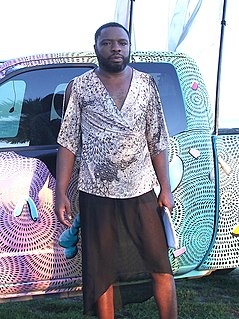A Quote by Dean Spade
Because my graduate academic training at law school was not one that included most of the intellectual traditions I find useful for understanding the conditions and problems that most concern me - anti-colonial theories, Foucault, critical disability studies, prison studies and the like are rarely seen in standard US Law School curricula, where students are still fighting on many campuses to get a single class on race or poverty offered - I developed most of my thinking about these topics through activist reading groups and collaborative writing projects with other activist scholars.
Quote Topics
About
Academic
Activist
Anti
Because
Class
Collaborative
Colonial
Concern
Conditions
Critical
Developed
Disability
Fighting
Fighting On
Find
Get
Graduate
Groups
Included
Intellectual
Law
Law School
Like
Many
Me
Most
Offered
Other
Poverty
Prison
Problems
Projects
Race
Rarely
Reading
Scholars
School
Seen
Single
Standard
Still
Students
Studies
Theories
Thinking
Through
Topics
Traditions
Training
Understanding
Us
Useful
Writing
Related Quotes
There is too much ideological conformity in gender studies. The true-believers fashion the theories, write the textbooks and teach the students. When journalists, policymakers, and legislators address topics such as the wage gap, gender and education, or women's health, they turn to these experts for enlightenment. For the most part, they peddle misinformation, victim politics, and sophistry. They claim that their teachings represent the academic consensus, but that is only because they have excluded all dissenters.
What do teachers and curriculum directors mean by 'value' reading? A look at the practice of most schools suggests that when a school 'values' reading what it really means is that the school intensely focuses on raising state-mandated reading test scores- the kind of reading our students will rarely, if ever, do in adulthood.
I have all of Elizabeth Lowell's first editions. I love these books. They are among my most treasured possessions. I have carried them in boxes through college, law school, apartments and then houses. They have seen me through my darkest moments and inspired me to my greatest joys. I sometimes get scared thinking what would have happened to me if I hadn't started writing. I literally cannot imagine another life. And Elizabeth Lowell played a huge part in getting me on the right path.
I am thoughtful about introducing terms that tend to be in circulation primarily in academic circles. "Homonormativity" and "homonationalism" are by no means solely academic terms, and in fact circulate in important ways in many activist circles, but in general I find them to be terms that most people I meet are not familiar with.
Well, the traveling teachers do come through every few months," said the Baron. "Yes, sir, I know, sir, and they're useless, sir. They teach facts, not understanding. It's like teaching people about forests by showing them a saw. I want a proper school, sir, to teach reading and writing, and most of all thinking, sir, so people can find what they're good at, because someone doing what they really like is always an asset to any country, and too often people never find out until it's too late.
I started in the law; and the study of law, when it precedes the study of economics, gives you a set of foundation principles about how human beings interact. Economics is very useful, and I studied economics in graduate school. But without understanding the social and organizational context of economics, it becomes a theory without any groundwork.
The high-school English teacher will be fulfilling his responsibility if he furnishes the student a guided opportunity, through the best writing of the past, to come, in time, to an understanding of the best writing of the present. He will teach literature, not social studies or little lessons in democracy or the customs of many lands. And if the student finds that this is not to his taste? Well, that is regrettable. Most regrettable. His taste should not be consulted; it is being formed.




































